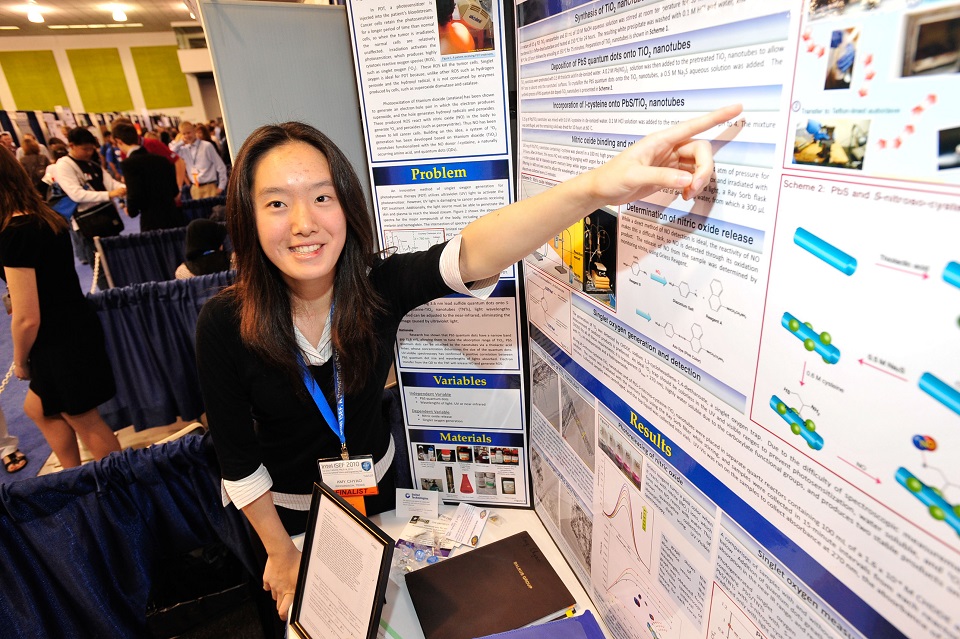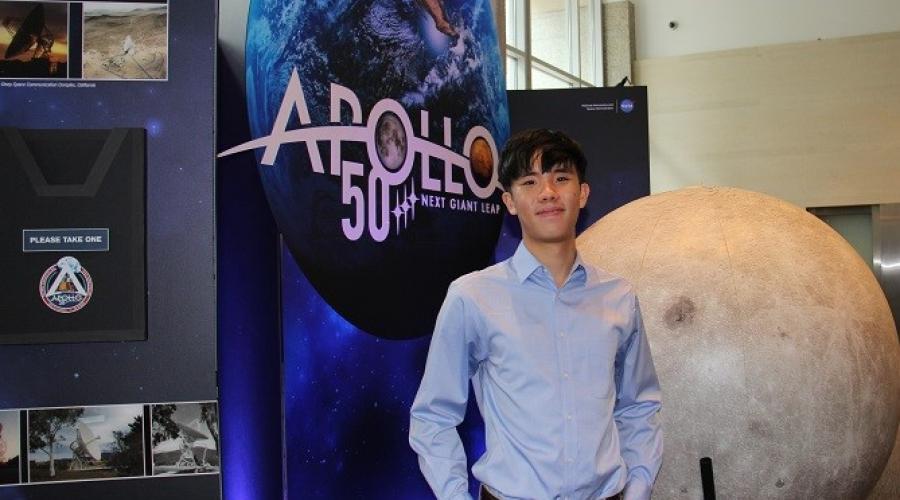Writing the Future – Science Fiction Based on Fact at Intel ISEF 2013
Brian David Johnson, Intel Futurist, spoke to a crowd of approximately 100 students, teachers, and science fair directors yesterday during the “Writing the Future- Science Fiction Based on Science Fact” symposium at the Intel International Science and Engineering Fair (Intel ISEF) 2013. Johnson spoke about his role as a Futurist and how Intel ISEF finalists can help build the futures of their imaginations. Below is a recap of his remarks.
What does a futurist do?
Johnson described his job as looking 10-15 years into the future and modeling how people will interact with each other and technology. While it sounds very imaginative, it is actually a practical role since the chips that Intel creates take between 5 to 10 years to design and deploy. Johnson is a principal engineer with a design background who uses social science, computer science, trends, data, and conversations with people around the world to predict what the future may hold. He is a self-described geek, nerd, science fiction fan, and optimist who believes the future is created everyday by the actions of people.
Why is science fiction important for the future?
Science fiction is a tool that can be used to decide the kind of future we want to live in or want to avoid. With advances in technology, many people believe science is now limited only by the imagination. Science fiction gives us visions and a common language to use when having conversations about the future.
Johnson spoke about how science fiction is connected to science fact because it explores the human implications of science and technology, including cultural, moral, and legal implications. Science fiction can be an inspiration- Johnson described how when he has asked roboticists what made them choose the field; they have a formal answer but also frequently have an answer along the lines of, “I wanted to build C3PO” [from Star Wars]. He mentioned the impact of stories like Frankenstein by Mary Shelley, which explores the ethics of electricity and of life with the creation of Frankenstein’s monster and of I, Robot and the Three Laws of Robotics created by Isaac Asimov, which added logic to science fiction.
Why should Intel ISEF finalists write science fiction?
Science fiction is a way for Intel ISEF finalists to share their research in a way that is easier for the general public to understand. Johnson said “as finalists, you are the ones to build the future” and that we all need to have conversations about what that future could and should be. “Once imagined, the future can be created. You change the future by changing the story people tell themselves about their future.”
Johnson also told audience members the ingredients of a good story (person, place, and problem) and his blueprint for designing the future through science fiction in five steps. He said he is a “huge fan of Intel ISEF because he believes the future is built through the actions of people…and this is one of the few places on Earth that is all about the future.”His goal in this symposium was to get Intel ISEF finalists to be more active participants in building the future by using science fiction.
The Future- Powered by Fiction
Attendees at the session also got a chance to hear about the new science fiction competition for ages 13-25 that was announced at Monday night’s Opening Ceremony. Additional information about the competition is available at isef.tomorrow-projects.com. Science fiction anthologies, videos, and podcasts designed to inspire conversations about the future are also available on the Tomorrow Project website.


